In early April, the Baltic leaders visited USA. The representatives of Lithuania, Latvia and Estonia discussed a wide range of issues with Donald Trump, including the gas problem. The American president praised his Baltic colleagues’ efforts in diversifying energy sources and spoke out against the construction of Nord Stream 2. Does this mean he is joining the Nord Stream 2’s opponents club? RuBaltic.Ru discusses the US president’s stance, the Baltics’ gas problem and the “Chinese solution” in front of them with Advisor to Gazprom Export CEO, Co-chair from Russian side of Worstream 2 “Internal Markets” Russia-EU Gas Advisory Council, professor of the International Oil and Gas Business department of the Gubkin Russian State University of Oil and Gas Andrey Konoplyanik.
— Mr. Konoplyanik, in the first part of our interview you said that Trump once let it slip that he plans to review the gas prices in Europe (saying they would rise, but that would be unimportant). I believe that Trump is confounded. Trump frequently speaks of a need to normalize relations with Russia, but the American production, whose interests are what Trump said he’d protect, have the prospect of “intercepting” the European gas market and profiting greatly from it. In your opinion, will the US president use his power to sabotage the Nord Stream 2 construction, just like US Congress demands?
— Well, I am not a secret adviser to the man, he doesn’t share his plans with me. And I am not a political scientist, so I don’t follow what Trump says or is said about him. But I agree that you articulated that as a problem. On one hand, the American president has to take note of the international relations systems and do things he may not want to (for example, congratulating Putin on winning the election).
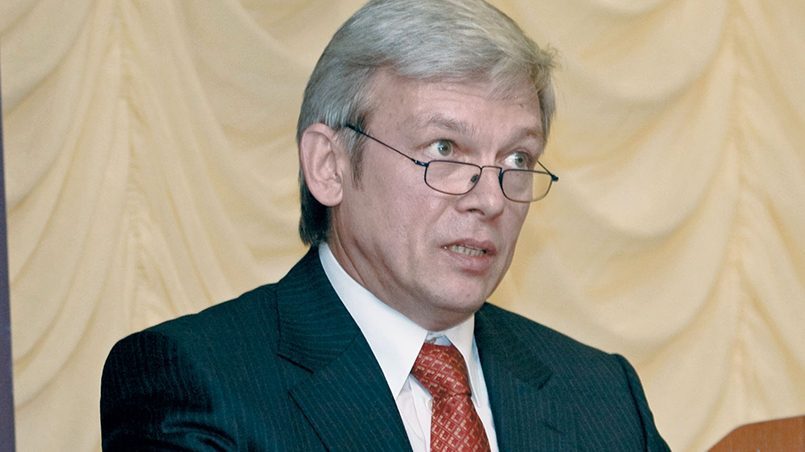
On the other hand, I still maintain that the domestic agenda is always the most important for any US president. So, he must protect the American businesses in any way and at any cost, even more so when it concerns their activities abroad (where the moral shackles are also gone).
There is a conflict, but I don’t know how it will be resolved. I don’t know the ends the politicians will go to. I am guessing that they are willing to go quite far. This is seen on people who do mutually exclusive statements on occasion.
I am convinced that a random man can’t become the US president. If he holds that post, then he is not a puppet.
He may be viewed as a puppet by the influencers that promoted him, but at some point one realizes that you can’t use the old system of values on the new level. In this regard, I recall the discussions around Viktor Chernomyrdin, who I have had the fortune of working with. After he was appointed prime minister, he quickly shifted from the mindset of a Gazprom official and adopted a mindset of a cabinet leader. Even though many kept saying that Gazprom will fix all of its problems…
And with Trump’s behavior, I can’t say anything concrete. His words probably show his arrogance. The man came in from business, where it all revolved around him, where he set up a clear vertical line of power with him on top. It seems he still believe in himself.
I honestly think that Trump let it slip on the gas prices in Europe. It was not a figure of speech, but an understanding of the situation. But a career diplomat would not have said that. Can you imagine someone like, say, Sergey Lavrov (Russian MFA) saying that? I think not. A diplomat senses the limits of decency, and Trump, it seems, has no idea of diplomatic etiquette. In these situations he acts like a bull in a china shop. Again, I tie that to him coming from his own business.
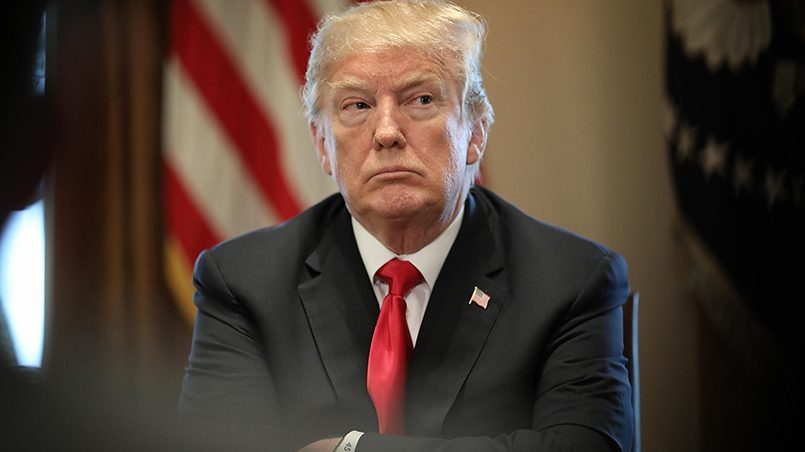
The dilemma you highlighted in your question will exist as long as Trump is president. And personal relations, in my opinion, are not the main thing here. While in office, Trump is under the influence of a large number of elites, who express their national interests clearly. And Trump is the president of that state. So the rhetoric can vary, but we should judge it by his domestic policy.
Let me repeat, I am not a political scientist, these are just my surface statements.
— What is the Baltics’ role in stopping the Nord Stream 2? Can the Baltics actually stop the projects going into realization?
— I think the Baltic countries are just setting the stage. I don’t want to offend anyone, but this is similar to the Soviet cartoon Baba Yaga is Against (Баба Яга против! 1979). I am not sure that resisting Nord Stream 2’s construction is in line with these countries’ usual domestic behavior. More than that, I am not sure this line is from Brussels either.
We have already spoken of betraying expectations. Lately, Estonia is frequently used as an example of an economically successful country. What can I say? Some time ago I was invited to make a speech in Tartu. I took the bus from the airport and drove through Estonian countryside. It was as bleak as the Russian backwater in the 1990 and 2000s (and sometimes currently). What I saw does not compare favorably to North-Western Europe, where I didn’t see abandoned fields and ditches.
Violating the norms of European tolerance when it comes to the Russian-speaking population in the Baltics is another example of their policy being made across the Ocean, and not in Brussels.
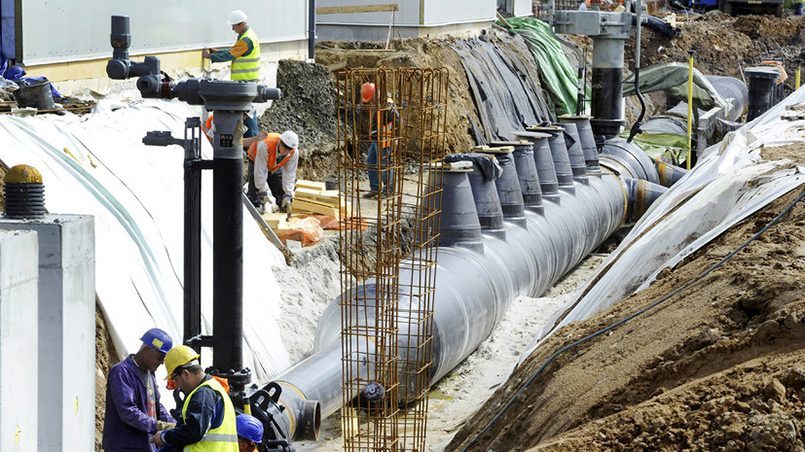
In my opinion, some processes in these countries were started only so they would become issues later. For example, Lithuania had the Ignalina Nuclear Power Plant which supplied a bigger portion of the Baltics with electricity. Under EU pressure (maybe not just the EU) it was closed. And in order to resolve the energy deficit, they had to rely a lot more on Russian gas shipments. There were no other options.
So Gazprom was compensating what was called a Soviet regime legacy and destroyed in the Baltics due to stupidity of outside orders (that is the only way I classify this).
After that, Gazprom have been labeled a monopolist and an energy dictator. But the “invited” monopolist came to help and cover the hole in energy supplies as well as for their own benefit obviously. And the “dictatorship” is as far as the market allows for it. Discounted prices are only for loyal countries (let’s recall Comecon - Council for Mutual Economic Assistance). The Baltics are clearly not the case here. We separated and stopped being friends (even being adversaries in some cases), so they have to pay the full price, giving the seller the max profit. This means it is the price that the buyer is willing to pay, even if being somewhat reluctant.
This is not price manipulation, because we use price of another market (historically – liquid fuel) to form the gas prices. This was always the logic behind long-term contracts. Why was there an economic and technological connection to liquid fuel? Because when the European gas industry was emerging in the 1960s, gas was competing with oil and crude oil in end consumer industries. And why was the connection to energy resource prices important to a different market? Because it excluded the possibility of price manipulation by the members of the long-term contracts.
And when the Baltics compensate the missing energy with Russian gas shipments, with the traditional price formula on contract gas, which has cemented itself in Europe in the early 1960s thanks to our Dutch partners.
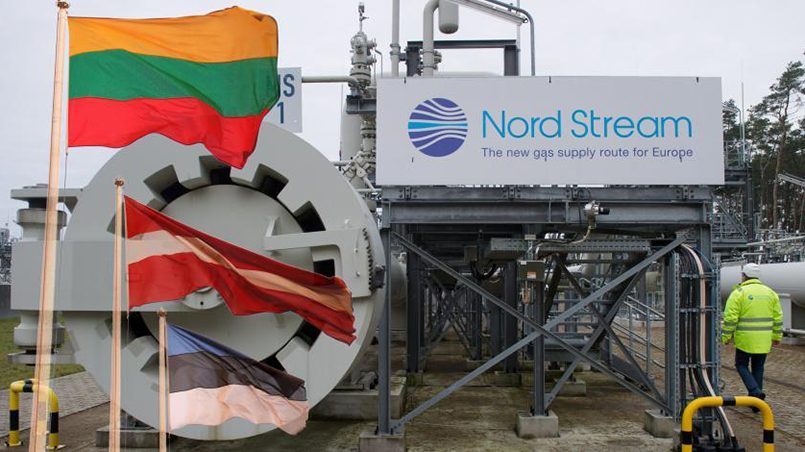
The Baltics have contradictions with European Union laws, since 2009, said laws state that each country should have a minimum of three sources. All the while they have only one. A question: where can they get the money? If Brussels won’t give them the money and they have no sources of their own, then countries start looking for other opportunities. And this is where the “Russian Scare” works best, because the American colleagues are always ready to throw them some cash, fixing not the economic or energy issues, but political ones.
— Were there actual attempts to fix the diversity problem in the Baltics?
— An attempt to solve this led to the floating LNG terminal Independence in Klaipėda. From the current economic situation, additional expenses will be shouldered by the population. Because the Norwegian gas is more expensive than the Russian one and the container has been rented for 10 years (ultimately paying more than its actual worth). Even to coastal infrastructure construction was paid for by the population through indirect taxes. But this expensive venture allowed them to fix two problems. First of all, the immediate one. Previously Gazprom held high prices, but as part of competition, they had to lower them.
Something similar happened to the OPEC countries at a time. The oil prices grew twenty-fold in the 1970s and that stimulated importers to turn down OPEC oil and start substituting other energy sources and the completely replace it with labor and capital. Replacing energy with labor means to move the energy-demanding production into developing countries with cheap labor and replacing them with capital means conducting a series of capital-heavy measure on moving the economy up to a new technological level. Ultimately, the demand dropped, oil prices in the 1980s went down and then dropped altogether. And it is a similar case with the Baltics. Alternative gas sources into the EU have forced Gazprom to adjust prices.
And another important part. Because today the Independence terminal is vastly beyond the Baltics demand, this creates additional opportunities for them. They are competing in the gas market (just potentially for now) with Gazprom as well.
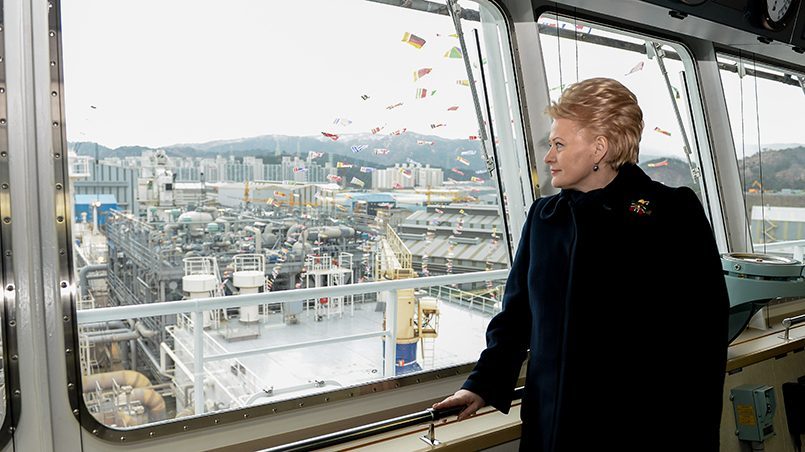
— Could you tell us more about the nature of this competition?
For European countries, especially ones without their own gas pipelines, the ability to use the mini-LNG technology. For example, the whole Baltic Sea coast. And then Independence turns into an unloading terminal. This is not just the ability to regasify the liquefied natural gas, but also send through the pipeline network, which will have it go to consumers in its conventional way, as well as mini-LNG tech as a fuel. Which fields could make use of this?
For example, cargo transport, coastal city utilities, large logistics companies. For coastal navigation and bunkering. In general, for decentralized gasification, including mobile energy systems (gas motor fuel on a wide range). Here, whoever is first – wins. I am not breaking new ground here, even though I haven’t heard the people at the Klaipėda terminal ever mention this in their speeches. But the economic logic will make this apparent. That is the second use of the LNG, which is will utilize the Polish Świnoujście terminal as well.
That way, fixing one problem at a hefty price, the Baltics get the opportunity to create new zones of business and more efficient use of the Independence terminal.
Then the economics come into play. I am assuming that the mini-LNG for the Baltic region based on Russian gas may be favorable over the import LNG with reshipping. But that is normal economic competition.
The traditional two sides to the coin. As our Chinese friends teach, the word “crisis” in Chinese is written with two characters: one represents trouble, problem and catastrophe and the second one represents an opportunity, a challenge a new perspective. So any crisis is a choice. As in the fairy tale of two frogs, who fell into the jug of milk and took different paths…
Translate by Pavel Shamshiev







